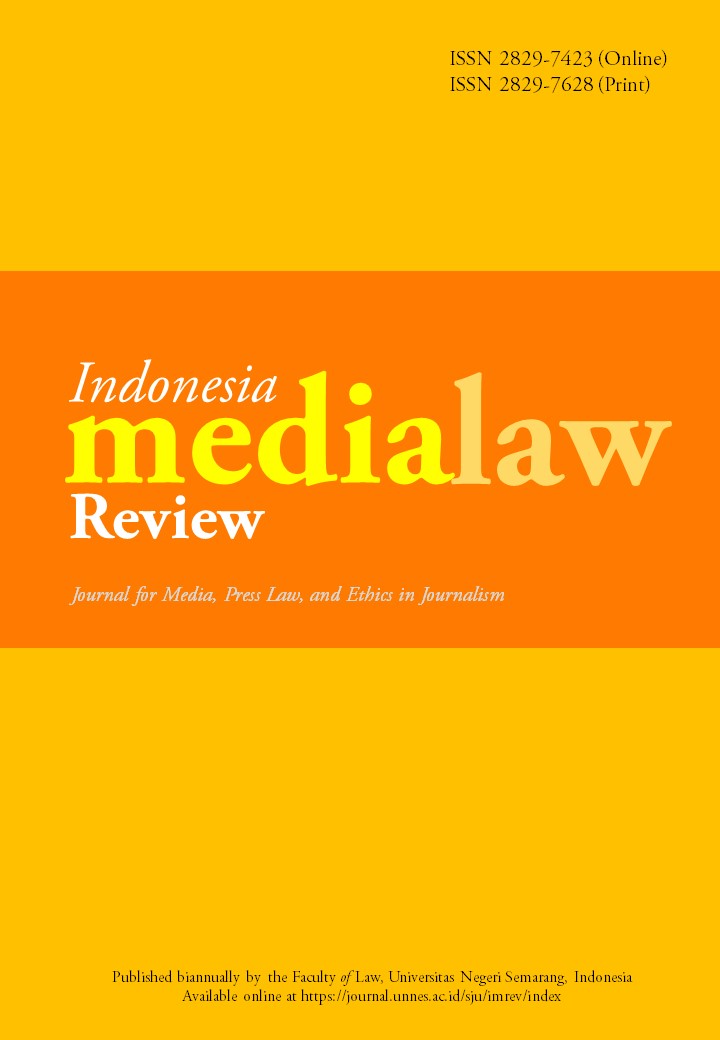Social Media as an Effective Solution to Dealing with Violations of the Professional Code of Ethics: An Overview of Violations of the Police Code of Ethics
Main Article Content
Abstract
The legal profession plays a crucial role in upholding justice and maintaining public order. It is the responsibility of legal professionals, including the police, to carry out their duties with integrity and high ethical standards. The code of ethics for the legal profession sets out the expected standards of behavior for its members. However, in practice, police officers often violate these ethical guidelines. In this paper, the author employs the normative legal research method, which examines legal rules from a vertical or horizontal perspective. The normative legal research method utilized in this paper adopts a normative juridical approach, focusing on the relevant laws and regulations. To address violations of the code of ethics by the police, the Professional and Security Division of the Indonesian National Police (referred to as Propam Polri) has established social media platforms for citizens to report complaints. As discussed earlier, citizens are required to submit a documented report when filing complaints. Effective complaint handling mechanisms are vital in addressing violations of the legal profession's code of ethics on social media. It is important to have clear internal policies, secure channels for lodging complaints, independent investigations, appropriate sanctions, and procedures for improvement and ongoing monitoring. By implementing such mechanisms, legal practitioners can uphold the integrity and ethical standards of their profession in their use of social media. Furthermore, appropriate consequences can be applied for any violations of the code of ethics that occur.
Article Details

This work is licensed under a Creative Commons Attribution-ShareAlike 4.0 International License.
References
Febriansyah, Ferry Irawan, and Halda Septiana Purwinarto. “Criminal Liability for Hate Speech Perpetrators on Social Media.” Journal of Legal Research De Jure 20, no. 2 (2020): 177. https://doi.org/10.30641/dejure.2020.v20.177-188.
Haryanto B. "Factors Causing Violations of the Police Code of Ethics." Journal of Law 26, no. 3 (2019): 339–58.
Hayate, Nur. “Social Media And Online Gender-Based Violence During the Covid-19 Pandemic.” Humaya Journal: Journal of Law, Humanities, Society, and Culture 1, no. 1 (2021): 43–52. https://doi.org/10.33830/humaya.v1i1.1858.2021.
Hidayatul, Athik. Mass Media Industry Management . Banda Aceh: Shia University Press, 2021.
Indonesia. The Criminal Code , nd
Iqbal, Muhammad, And Darmansyah. “Implementation Of Polri's Professional Code Of Ethics Toward Polri Members Who Permit The Criminal Action Of Theft (A Research In The Legal Area Of Polda Aceh)” 3, No. 2 (2019): 286–301.
Mana, Abdul. Legal Changing Aspects . Print to. Jakarta: Kencana, 2013.
Peter Mahmud Marzuki. Introduction to Law , 2008.
Purwati, Dr. Ani. Legal Research Method Theory And Practice . Surabaya: Cv Jakad Media Publishing, 2020.
Ramdan, Rama Ridial Allif. "Implementation of Police Professionalism in the Police Profession" 20, no. September (2022).
Suryani, Reni, and Suhendar. "Use Social Media Wisely, So You Don't Get Ensnared by the Criminal Law Sanctions of the ITE Law." Abdi Laksana Community Service Journal 1, no. 1 (2022).
UI, Faculty of Law. "The Law Is Timeless With Technology." law.ui.ac.id. Accessed June 14, 2022. https://law.ui.ac.id/v3/ Hukum-tak-lekang-dengan-technology/.
